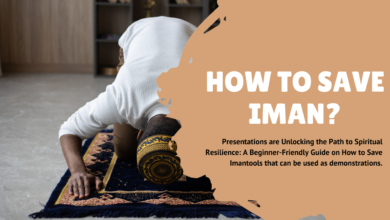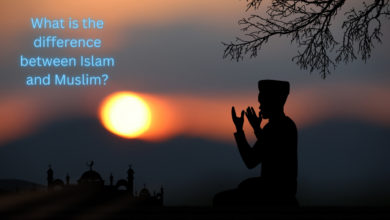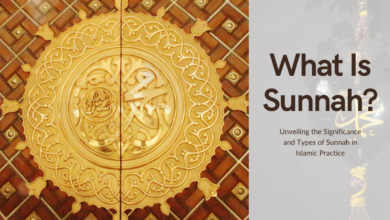
Is Hijab Mandatory In Islam?
Yes, for many Muslims, wearing the hijab is considered mandatory. It is seen as a religious obligation for Muslim women to cover their hair and maintain modesty.

Introduction
The question of whether the hijab is mandatory in Islam has been a topic of discussion and debate for many years. The hijab, a veil or headscarf worn by Muslim women, is often seen as a symbol of modesty and religious identity. To understand its significance and whether it is an obligation in Islam, we must explore the various perspectives within the Muslim community and examine the Quranic verses and Hadiths that address this issue.
The Quranic Perspective
The Quran, the holy book of Islam, is the primary source for understanding the religious obligations of Muslims. When it comes to the hijab, there are several Quranic verses that are often cited in this context. Two of the most frequently referenced verses are from Surah An-Nur (Chapter 24), which are verses 31 and 60:
- Surah An-Nur (24:31): “And tell the believing women to reduce [some] of their vision and guard their private parts and not expose their adornment except that which [necessarily] appears thereof and to wrap [a portion of] their headcovers over their chests and not expose their adornment except to their husbands, their fathers, their husbands’ fathers, their sons, their husbands’ sons, their brothers, their brothers’ sons, their sisters’ sons, their women, that which their right hands possess, or those male attendants having no physical desire, or children who are not yet aware of the private aspects of women. And let them not stamp their feet to make known what they conceal of their adornment. And turn to Allah in repentance, all of you, O believers, that you might succeed.”
- Surah An-Nur (24:60): “And women of post-menstrual age who have no desire for marriage – there is no blame upon them for putting aside their outer garments [but] not displaying adornment. But to modestly refrain [from that] is better for them. And Allah is Hearing and Knowing.”
From these verses, it is clear that there is an emphasis on modesty for both men and women, and women are instructed to cover their bodies and wear a head covering. However, the level of coverage and interpretation may vary among Islamic scholars and cultures.
Also Check
- How Many Nabi in Islam?
- How Many Hindu Country In The World?
- Is taking Bribe is Haram in Islam?
- Indonesia Religion
- Diwali Celebrations in Islamic Countries
The Hadiths and Scholarly Opinions
In addition to the Quran, Hadiths, which are the sayings and actions of the Prophet Muhammad (peace be upon him), provide additional guidance for Muslims. Hadiths offer more context on the hijab and how it should be worn.
The Prophet Muhammad (peace be upon him) is reported to have said, “O Prophet, tell your wives and daughters and the believing women to draw their outer garments around them. That is more suitable that they will be recognized and not be abused. And ever is Allah Forgiving and Merciful” (Quran 33:59).
It is essential to note that there is a range of opinions among Islamic scholars regarding the interpretation of these Quranic verses and Hadiths. Some scholars believe that the hijab is mandatory and that it must cover the entire body, including the face and hands, while others maintain that it is obligatory but that the face and hands can remain uncovered. Still, others argue that it is a recommended practice rather than a strict obligation.
Cultural Variations
It is important to recognize that cultural and regional factors can influence the way the hijab is observed. The level of strictness in hijab adherence can differ widely across various Muslim-majority countries and even within Muslim communities in non-Muslim-majority countries.
In some cultures, women may wear the niqab, which covers the face except for the eyes, while in others, the hijab may be worn more loosely, showing the face. The way in which the hijab is practiced can also depend on personal interpretation and individual choice.
Conclusion
The question of whether the hijab is mandatory in Islam is a complex one with varying interpretations and cultural influences. While the Quran and Hadiths provide guidance on modesty and covering, the specific requirements and enforcement can differ among Islamic scholars and communities.
Ultimately, the decision to wear the hijab is a personal one, influenced by an individual’s understanding of religious obligations and their cultural and societal context. It is essential to respect the choices of Muslim women regarding the hijab and to engage in dialogue and understanding rather than making assumptions or passing judgment based on appearances.

(FAQs) about the hijab in Islam:
Is wearing the hijab mandatory in Islam?
Yes, for many Muslims, wearing the hijab is considered mandatory. It is seen as a religious obligation for Muslim women to cover their hair and maintain modesty.
What does the term “hijab” refer to in Islam?
In Islam, “hijab” refers to the headscarf or veil that Muslim women wear to cover their hair, neck, and sometimes their chest.
Is wearing the hijab a personal choice for Muslim women?
While some Muslim women choose to wear the hijab as a personal expression of their faith and modesty, others may feel it is mandatory based on their interpretation of Islamic teachings.
Are there different styles of hijab?
Yes, there are various styles of hijab that can differ based on cultural and regional influences. Some common styles include the traditional headscarf, the niqab, and the burqa.
Can non-Muslim women wear the hijab?
Non-Muslim women can wear the hijab if they choose to do so out of respect for Islamic customs, while also being mindful of the cultural and religious significance.
What are the Quranic verses and Hadiths that mention the hijab?
The Quran contains verses that encourage modesty and the covering of one’s adornment. While there is no specific verse that explicitly mentions the word “hijab,” various verses in the Quran discuss the importance of modesty. Hadiths (sayings and actions of the Prophet Muhammad) also provide guidance on the concept of modest dress.
Is the hijab mandatory in all Islamic countries?
The enforcement and interpretation of Islamic dress codes, including the hijab, can vary from country to country. While some countries may have laws or social norms that require women to wear the hijab, others may have more relaxed or lenient approaches.
Are there exceptions to wearing the hijab?
In Islam, there are exceptions to wearing the hijab. For example, women may not be required to wear it in the presence of close family members or in certain private settings.
Can Muslim women choose not to wear the hijab?
Yes, Muslim women have the freedom to choose whether or not to wear the hijab. It is a matter of personal conviction and interpretation of religious principles.
How does the hijab relate to the broader concept of modesty in Islam?
The hijab is a visible symbol of modesty, which is a central concept in Islam. Modesty encompasses not only clothing but also behavior, speech, and interactions with others.






